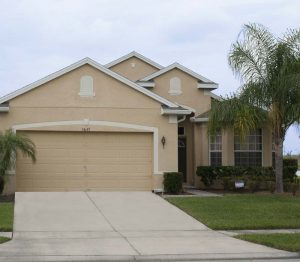
You bought your house long ago. You’ve enjoyed many happy years there. But now it’s time to upsize, or downsize, or build your dream home, or move to the mountains. So you meet with a few Realtors, pick one, and sign a listing agreement. You cleaned your house, maybe had it repainted. You spruced up the yard.
And now, months later, your house still hasn’t sold.
There are many reasons your house might sit unsold for longer than expected. It’s possible that more than one reason applies. Talk to your agent about what the problems could be and what steps you or your agent can take to get that “SOLD” sign up.
Price
If your house is overpriced for what it is and the area it’s in, it’s not going to sell at your asking price. You will likely lose many potential buyers who conduct their home searches based on the price range that fits their budget. If they can afford $300,00 to $350,000, but you listed your $350,000 house for $400,000, it’s not even going to turn up in their searches. If you’re getting a fair amount of interest — buyers are inquiring, they’re coming to look at it, but they’re not making offers — that can be another sign that you’ve priced it too high. Or you’ve received a few offers, but they’re clustered around a price point below your asking price. Or perhaps the house prices have dropped since you listed your house. You and your agent might want to take a long, hard look at your asking price, and consider dropping it.
Marketing
Is your home’s listing, as it appears in the MLS, complete and accurate? Does the listing accurately reflect that the house has an in-ground pool with a screen enclosure? Are key room dimensions included? The whirlpool bath and dual sinks in the master bath? The granite countertops and double oven?
Are the listing photos good quality, crisp and clear, and do they show all the visually important features? Was the litterbox removed from the utility room and the kitchen counters cleared off and cleaned before the listing photos were taken?
A poor listing can cause many potential buyers to cross your home off their list of properties to visit. Even worse, it can keep them from even being aware of it at all — for example, if they’re searching only for homes less than 10 years old, and yours is 5 years old, but your agent failed to include the year of construction in the listing. Or failed to include the fact that it has a pool, or that it’s waterfront, or that it has a 3-car garage. You and your agent might want to sit down and do a thorough review of the listing to make sure that all relevant information is included.
Staging
Of course you cleaned your house thoroughly, and you work hard to keep it clean so that it can be available for showings on short notice. But have you packed away your lifetime collection of 250 kewpie dolls? Have you removed or repaired old worn furnishings? Do you have smelly litterboxes in the bathroom or utility room? Is the refrigerator plastered with your grandchildren’s drawings? Buyers need to be able to envision themselves living there, and if the house reflects too much of you and your family, they might not be able to see past your things. You might want to consult with your agent about how you can better stage your home to make a better impression on buyers.
Showings
Do you vacate the home when buyers arrive, or do you stay there and — even worse — follow the buyers around from room to room talking about your house? Are you flexible on showing times and advance notice? While it’s common courtesy for the showing agent to make an appointment as far in advance as possible, sometimes the buyers may be on a tight schedule. Do you crate your pets prior to showings? Some pets might need to be removed from the house altogether before showings.
The House Itself
Does your agent repeatedly get the same negative feedback about that water stain on the living room ceiling, or the broken garage door opener, or the leaky faucet in the bathroom? That’s valuable feedback you’re receiving about why your house hasn’t sold yet. Do something about those problems. If the complaints are about aspects that you can’t fix, such as lot size or location on a busy street, it might be time to lower the price to reflect that.
Your Agent
Does your agent respond to inquiries promptly? Is your agent taking steps beyond listing your home in the MLS to get it out in front of potential buyers? Does your agent keep you informed of buyer feedback and market changes that could affect your house’s selling potential? Does your agent make staging or repair suggestions to you about what you can do with your home to improve its appeal to buyers? Does your agent keep an eye on other homes for sale in your area to know what’s selling and at what prices?
Timing, and the Market
There may be factors outside anyone’s control that can affect how long it takes to sell your house. Here in southwest Florida, unlike much of the country, the winter months are the prime real estate season. While real estate does get bought and sold in the summertime, buying and selling activity increases significantly during the winter. If you first listed your home for sale in June, there will be fewer potential buyers during those first few months it’s on the market. Other market factors come into play too: If your waterfront home sits on a canal that’s filled with dead fish from this year’s red tide, it’s just not going to be as attractive to buyers as it would be otherwise. It might be that your only options are to wait things out, or, if you’re in hurry to sell, lower the price to a point that someone will buy it.
The Bottom Line
The fact is, if you listed your home for sale for $100, it would sell in a heartbeat. If you’re not getting realistic offers at or near your asking price, either your price is too high, or there are other problems that are keeping it from selling. You can either address those problems, or reduce the price. Your first step should be talk to your agent about your concerns, so that together you can put together a plan of action to get your house sold.


